
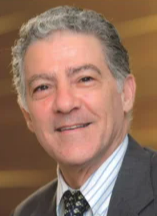 | Prof. Alberto Avolio, Macquarie Medical School, Macquarie University, Sydney, Australia (IEEE Fellow) |
Biography: Professor Alberto Avolio, BE, PhD (UNSW), FIAMBE, is Professor of Biomedical Engineering in The Australian School of Advanced Medicine at Macquarie University, Sydney, Australia. He has acquired international recognition in the field of cardiovascular haemodynamics. He has taught in the fields of cardiovascular dynamics and in the broad area of engineering in medicine and biology and has extensive experience in PhD supervision and in examination of local and international higher degree theses. Current research areas include pulsatile relationships between blood pressure and flow, characterization of pressure-dependent indices of vascular function, cellular and molecular mechanisms of arterial stiffness, pulse wave analysis and non-invasive estimation of central aortic pressure, retinal vascular function and non-invasive assessment of cerebral dynamics, cerebral aneurysms, cardiovascular modelling and biological signal processing. He has received over $7 million in collaborative research grant support and is on the assessment panel of national and international granting bodies. He is on the editorial board of journals of cardiovascular research and hypertension (Hypertension, Journal of Hypertension, Artery Research, Current Hypertension Reviews, Advanced Biomedical Engineering, Pulse) and is a reviewer for over 40 international scientific journals. He has over 170 publications including a book, book chapters and peer reviewed articles.
Professor Avolio is a Visiting Professor at the Tokyo Medical University and external assessor of Biomedical Engineering curriculum at the University of Malaya. He has recently been elected a Fellow of the International Academy of Medical and Biological Engineering.
Speech Title: TBD
Abstract: TBD
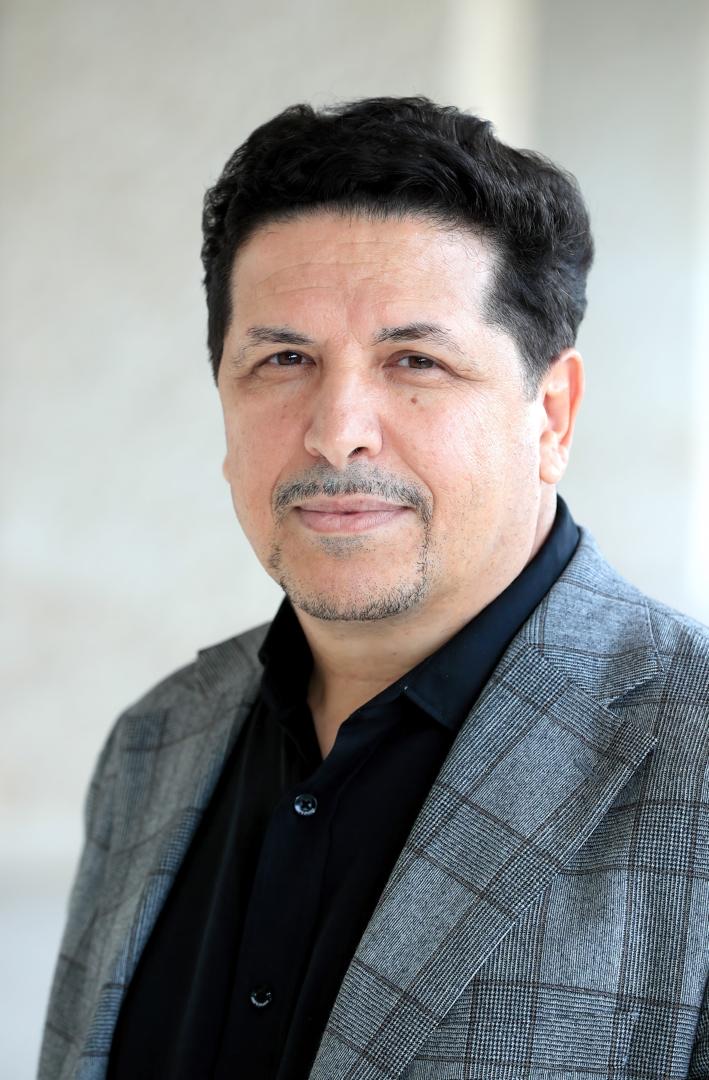  | Prof. Habib Zaidi, Geneva University, Switzerland (IEEE Fellow) |
Biography: Habib Zaidi is Chief physicist and head of the PET Instrumentation & Neuroimaging Laboratory at Geneva University Hospital and full Professor at the medical school of the University of Geneva. He is also a Professor at the University of Groningen (Netherlands), the University of Southern Denmark (Denmark) and Óbuda University (Hungary). His research is supported by the Swiss National Foundation, the European Commission, private foundations and industry (Total 11M+ US$) and centres on hybrid imaging instrumentation (PET/CT and PET/MRI), computational modelling and radiation dosimetry and deep learning. He was guest editor for 14 special issues of peer-reviewed journals and serves and serves as founding Editor-in-Chief (scientific) of the British Journal of Radiology (BJR)|Open, Deputy Editor for Medical Physics and is on the editorial board of leading journals in medical physics and medical imaging. He has been elevated to the grade of fellow of the IEEE, AIMBE, AAPM, IOMP, AAIA and the BIR. His academic accomplishments in the area of quantitative PET imaging have been well recognized by his peers since he is a recipient of many awards and distinctions among which the prestigious (100’000$) 2010 Kuwait Prize of Applied Sciences (known as the Middle Eastern Nobel Prize). Prof. Zaidi has been an invited speaker of over 250 keynote lectures and talks at an International level, has authored over 450+ peer-reviewed articles (h-index=81, >24’300+ citations) in prominent journals and is the editor of four textbooks.
Speech Title: The promise of artificial intelligence-powered multimodality medical imaging
Abstract: Positron emission tomography (PET), x-ray computed tomography (CT) and magnetic resonance imaging (MRI) and their combinations (PET/CT and PET/MRI) provide powerful multimodality techniques for in vivo imaging. This talk presents the fundamental principles of multimodality imaging and reviews the major applications of artificial intelligence (AI), in particular deep learning approaches, in multimodality medical image analysis. It will inform the audience about a series of advanced development recently carried out at the PET instrumentation & Neuroimaging Lab of Geneva University Hospital and other active research groups. To this end, the applications of deep learning in five generic fields of multimodality medical imaging, including imaging instrumentation design, image denoising (low-dose imaging), image reconstruction quantification and segmentation, radiation dosimetry and computer-aided diagnosis and outcome prediction are discussed. Deep learning algorithms have been widely utilized in various medical image analysis problems owing to the promising results achieved in image reconstruction, segmentation, regression, denoising (low-dose scanning) and radiomics analysis. This talk reflects the tremendous increase in interest in quantitative molecular imaging using deep learning techniques in the past decade to improve image quality and to obtain quantitatively accurate data from dedicated standalone (CT, MRI, SPECT, PET) and combined PET/CT and PET/MRI imaging systems. The deployment of DL-powered methods when exposed to a different test dataset requires ensuring that the developed model has sufficient generalizability. This is an important part of quality control measures prior to implementation in the clinic. Novel deep learning techniques are revolutionizing clinical practice and are now offering unique capabilities to the clinical medical imaging community. Future opportunities and the challenges facing the adoption of deep learning approaches and their role in molecular imaging research are also addressed.
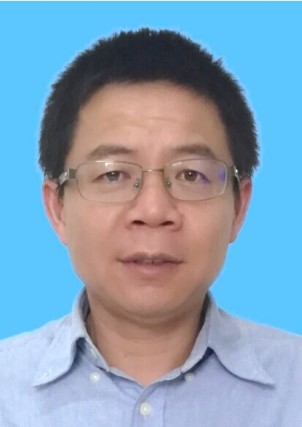 | Prof. Lisheng Xu, Northeastern University, China |
Biography: Xu Lisheng, full professor and PhD supervisor of the College of Information Science and Engineering, Northeast University. His research interests include advanced sensing and intelligent perception, artificial intelligence in biomedical signal and image analysis, and computer-aided diagnosis technology. At present, he is the principle investigator of 23 projects such as the National Natural Science Foundation of China, doctoral programs of the Ministry of Education and projects of the Natural Science Foundation of Liaoning Province and so on. He has won the honors of "Excellent Master's Instructor in Liaoning Province", "Excellent Postgraduate Supervisor in Shenyang", "One Hundred Thousand High-end Talents Introduction Project" in Liaoning Province, "Thousand Talents Level" in Liaoning Province, and "Top Young Talents" in Liaoning Province. Currently, 219 journal and conference papers have been published, including 158 SCI indexed papers and 50 EI indexed papers; 21 invention patents have been granted. He is the Vice President of the Diagnostic Information Committee of the Chinese Medical Information Research Association, Senior Member of IEEE, Vice Chairman of the Biomedical Measurement Committee of the Chinese Biomedical Engineering Society, Member of the 6th Discipline Evaluation Group of Liaoning Province, associate editor of international journals such as Biomedical Signal Processing and Control, Frontiers in Physiology, Scientific Reports, etc. He has won the first prize for scientific and technological progress in Liaoning Province, with a main research focus on new technologies for intelligent non-invasive diagnosis and treatment of the cardiovascular system based on multimodal data.
Speech Title: New technology for non-invasive intelligent diagnosis, treatment, and integrated health of cardiovascular system
Abstract: The human cardiovascular and cerebrovascular system contains a wealth of functional information that needs to be further revealed. Dynamic monitoring is a very effective way to obtain real-time data individually. However, dynamic monitoring faces difficulties in data collection, and some data cannot be non-invasively monitored. However, individual differences are significant, and information on cardiovascular function needs to be revealed more comprehensively through multimodal data and more efficient learning methods. At present, the treatment of the cardiovascular and cerebrovascular system mainly relies on medication and invasive surgery. Therefore, there is an urgent need to develop non-invasive and non-pharmacological methods for treatment and intervention. Furthermore, closed-loop integration of diagnosis and treatment can be achieved for more precise dynamic non-invasive intervention and control. Firstly, this lecture introduces the preliminary work of the research group in flexible sensing and unawareness monitoring. Then, the personalized modeling and precise diagnosis of cardiovascular and cerebrovascular functions based on multimodal data-driven and knowledge-driven learning will be introduced. Finally, the research on personalized intervention based on non-invasive ultrasound will be demonstrated.
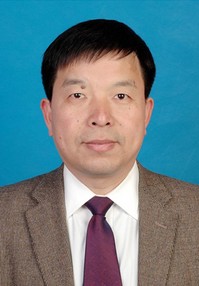 | Prof. Lihua Li, Hangzhou Dianzi University, China |
Biography: Lihua Li, male, Doctor, winner of the National Science Fund for Outstanding Young People, Member of Zhejiang Science and Technology Development Advisory Committee, member of Zhijiang Laboratory Academic Advisory Committee, member of IEEE TEMS Society Intelligent Medicine Digitization Technology Committee, Chairman designate of Image Information and Control Professional Committee of Chinese Biomedical Engineering Society, and deputy chairman of Medical Imaging Professional Committee of Chinese Graphic and Image Society. He worked for many years as an associate professor at the University of South Florida. He has published more than 200 high-level scientific research papers and foreign book chapters (chapters), including Nature sub-journal, and has been authorized more than 20 patents, of which two American patents have been adopted and industrialized by the company. In 2012, he won the Contribution Award of Chinese Overseas Chinese Community (Innovative talents).
Main research direction: Mainly engaged in artificial intelligence and its application in smart medical treatment, carrying out research and innovation around artificial intelligence, pattern recognition, image processing, machine learning methods and technologies, as well as applications in early disease detection, diagnosis and precision treatment.
Speech Title: TBD
Abstract: TBD
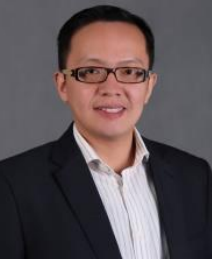 | Prof. Yifan Chen, University of Electronic Science and Technology of China, China |
Biography: Dr. Yifan Chen is a Distinguished Professor at the School of Life Science and Technology, University of Electronic Science and Technology of China. He has held various academic and leadership positions in top-tier universities in China, New Zealand, UK, and Singapore. He is a Fellow of Engineering New Zealand, a Fellow of The Institution of Engineering and Technology, UK, and a Fellow of The European Alliance for Innovation. He is a Senior Editor/Associate Editor/Guest Editor for several cross-disciplinary journals such as IEEE TNB, TMBMC, JERM, OJAP, TAP, and JBHI, and the General Chair for ACM NanoCom 2025 and EAI BICT 2020, 2023, 2024, and 2025. His current research interests include in vivo computation where computing meets bio-sensing, molecular and biological communications where communicating meets bio-transporting, and electromagnetic biomedicine where RF sensing meets bio-imaging. His research has been supported by NSFC and MOST (China), MBIE and HRC (New Zealand), EPSRC (UK), FP7 and COST (European Union), etc., and received media coverage from IEEE Spectrum, IET, Engineering New Zealand, The New Zealand Herald, etc.
Speech Title: Microwave Medical Imaging and Sensing for Disease Dagnosis and Health Monitoring
Abstract: Microwave medical imaging and sensing (MMIS) operating over the frequency range covering hundreds of megahertz to tens of gigahertz has the potential to provide proactive healthcare solutions to patients with acute (for early diagnosis) or chronic (for daily monitoring) medical conditions. This technology exploits the tissue dielectric properties for disease diagnosis by using quantitative or qualitative algorithms. The conventional medical imaging systems such as computerized tomography (CT), magnetic resonance imaging (MRI), magnetic resonance electrical properties tomography (MR-EPT), and ultrasound face different disadvantages including ionized radiation, difficulty in interpretation, high cost, and poor spatial resolution. MMIS offers an alternative solution to monitor in vivo abnormalities in a nonionizing, affordable, and lightweight manner, which facilitates the diagnosis of patients in homes, nursing homes, and ambulances. The advantages of MMIS include low health risk, low operational cost, lightweight implementation, and ease of use, given its perspective of miniaturization and integration into portable and handheld devices with networking capability. In this talk, we will discuss our works on MMIS for cancer detection, stroke detection, heart imaging, bone imaging, tracking of in-body drug-loaded nanorobots, etc.
The Keynot Speaker list above is continuously updated.
